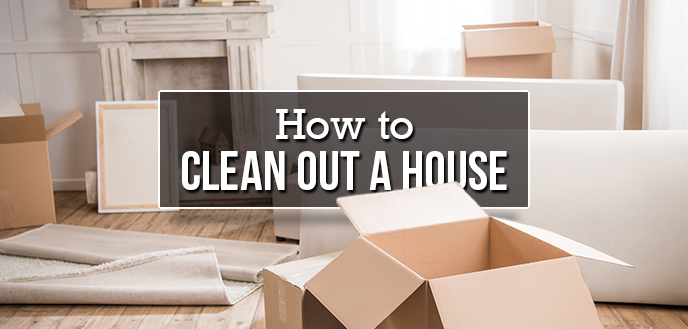Specialist Guidelines for a Effortless Estate Clean Out Operation
Handling the process of clearing an estate can be challenging, often accompanied by emotional complexity and difficulties. Whether you're sorting through the items of a deceased loved one or navigating life changes, the process can be challenging. However, with proper guidance and insights, you can approach this process with ease and efficiency.
Clearing an estate is not just about sorting through items; it requires you to make key choices about what to keep, donate, sell, or discard. Having knowledge on how to approach this can save you time, reduce stress, and help you honor the memories associated with the items you are dealing with. In the sections ahead, we will provide valuable insights and practical advice to ensure a smooth estate clean out that respects both the past and your future needs.
Preparing Your Estate Clean Out
A effective estate clean out starts with careful preparation. Start by establishing a timeline that fits your needs. Decide whether you want to carry out the process yourself or hire a professional estate clean out service. If you opt for a DIY strategy, assemble family members or friends who can support. Having a solid plan will make the process more manageable and more approachable.
Subsequently, take stock of the items that need to be sorted. Review the space and document items of value, emotionally significant pieces, and anything that should be disposal. This list will help you organize what needs to be handled first. It will also aid in decisions about items that may need valuation or could be given away or traded. Clear communication with family members about which items hold significance can also streamline the decision-making process.
Ultimately, ensure you have the necessary materials and tools ready before starting. Boxes for packing, labels for organization, and moving means for larger items are important. Think about enlisting the help of professionals who specialize in estate clean outs, as they can provide resources and expertise that can ease the process. With adequate planning, this experience can transform from a overwhelming task into a more manageable process.
Organizing and Ordering Items

The task of arranging and ordering belongings is essential during an estate clean out. Begin by creating specific areas for possessions based on their classification, such as retain, contribute, trade, and dispose of. This will help in clarifying what is to be done with each item and make the overall process more manageable. As you go through items, take your time to consider the worth and sentiment attached to every item, which can help in making informed choices about what to retain or part with.
Engage family relatives in the categorizing task when feasible. They may have individual sentiments associated with certain items and can provide insight on what should be preserved for future generations. Creating a set timeframe for all sections can help maintain attention and prevent the task from becoming intimidating. Using bins or boxes to temporarily hold items designated various results can facilitate the process, making it easier to transport them later.
Once everything is sorted, start the tangible act of storing possessions. Use robust containers and proper packing materials to safeguard delicate items. Label each box clearly with its contents and the planned next phase, whether it be give away, market, or hold. This organized process not only streamlines the cleanup but also makes it easier for everyone involved to grasp what is happening with the possessions, ensuring a more seamless experience through this emotionally charged task.
Disposal Choices and Donations
When it comes to an estate clean out, understanding your disposal options is essential. Many items that are no longer needed can be thrown away responsibly, reducing waste and supporting the environment. Start by sorting through belongings to identify what can be discarded, processed, or donated. Local waste management services often provide instructions on what can be discarded, including hazardous materials that require careful disposal.
Giving away items are a meaningful way to give back to the society while clearing out the estate. Non-profit organizations, shelters, and charitable groups often accept pre-owned items, such as apparel, furniture, and domestic items. Research local charities to learn which items they will accept, as well as any particular rules they may have. Make sure to obtain a receipt for tax purposes if you plan to claim these contributions on your taxes.
If some objects cannot be given away or recycled, consider other ways to dispose. Many areas have large item collection services or designated drop-off sites for large items. Additionally, you can hold a garage sale to offer items that are still in good condition. This not only helps clear out the estate but can also offer some monetary gain. By exploring various disposal options and embracing donations, you can handle the estate clean out efficiently and responsibly.